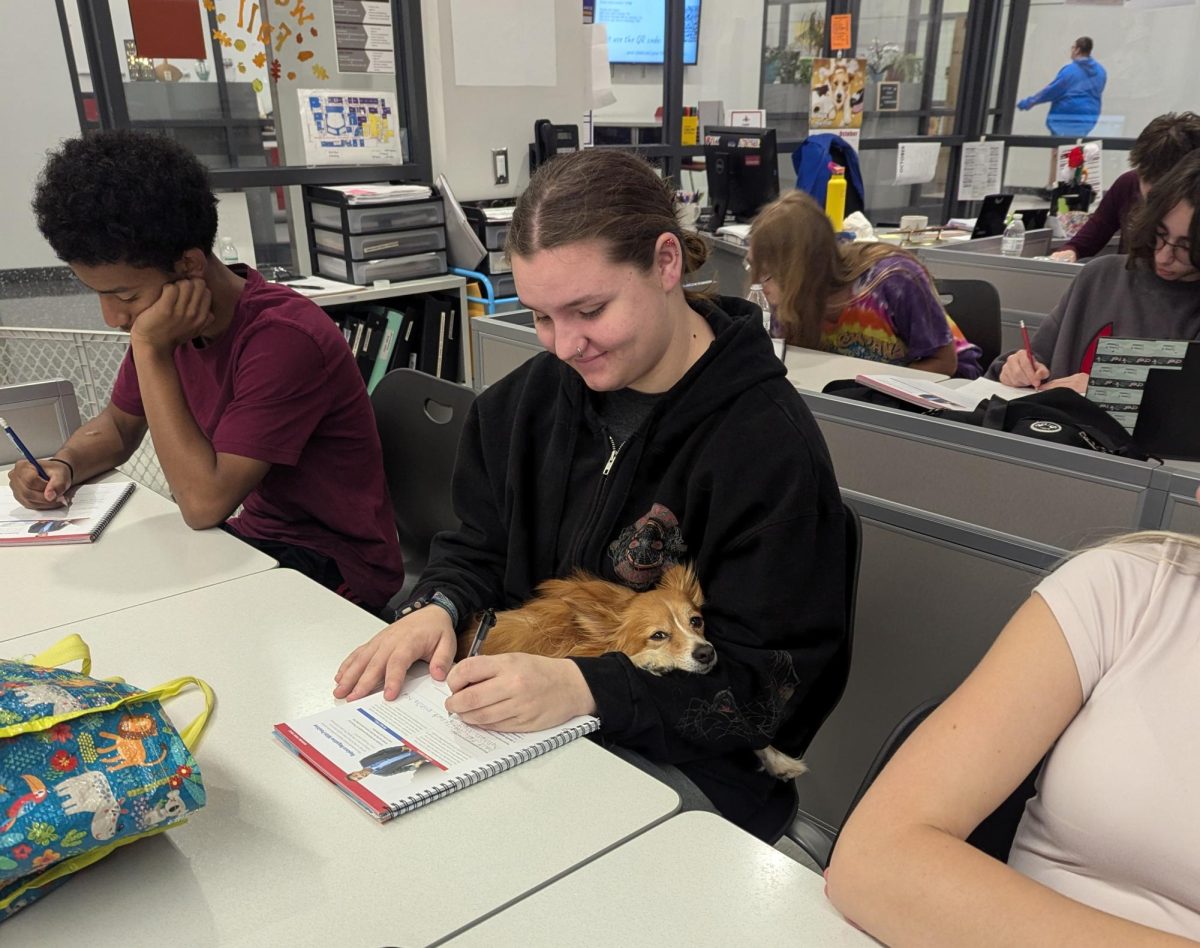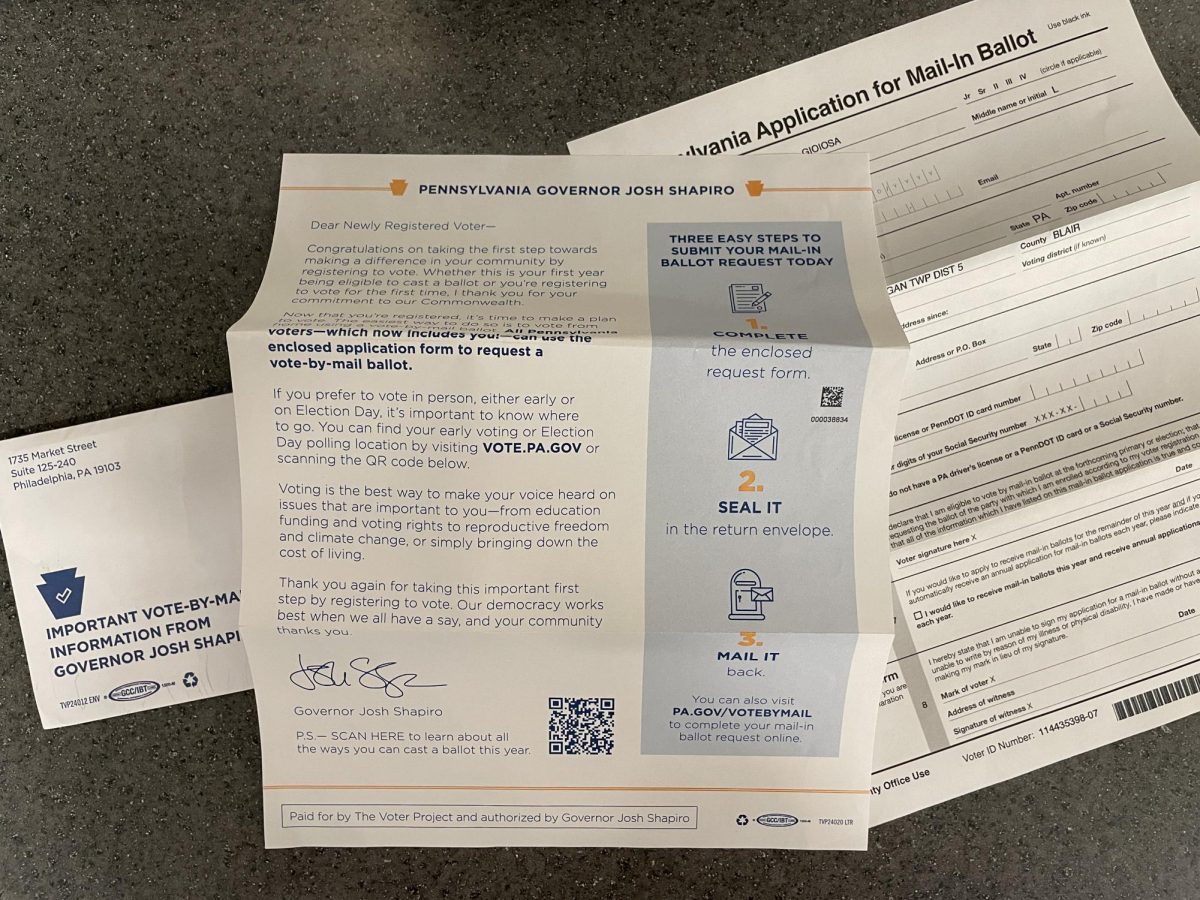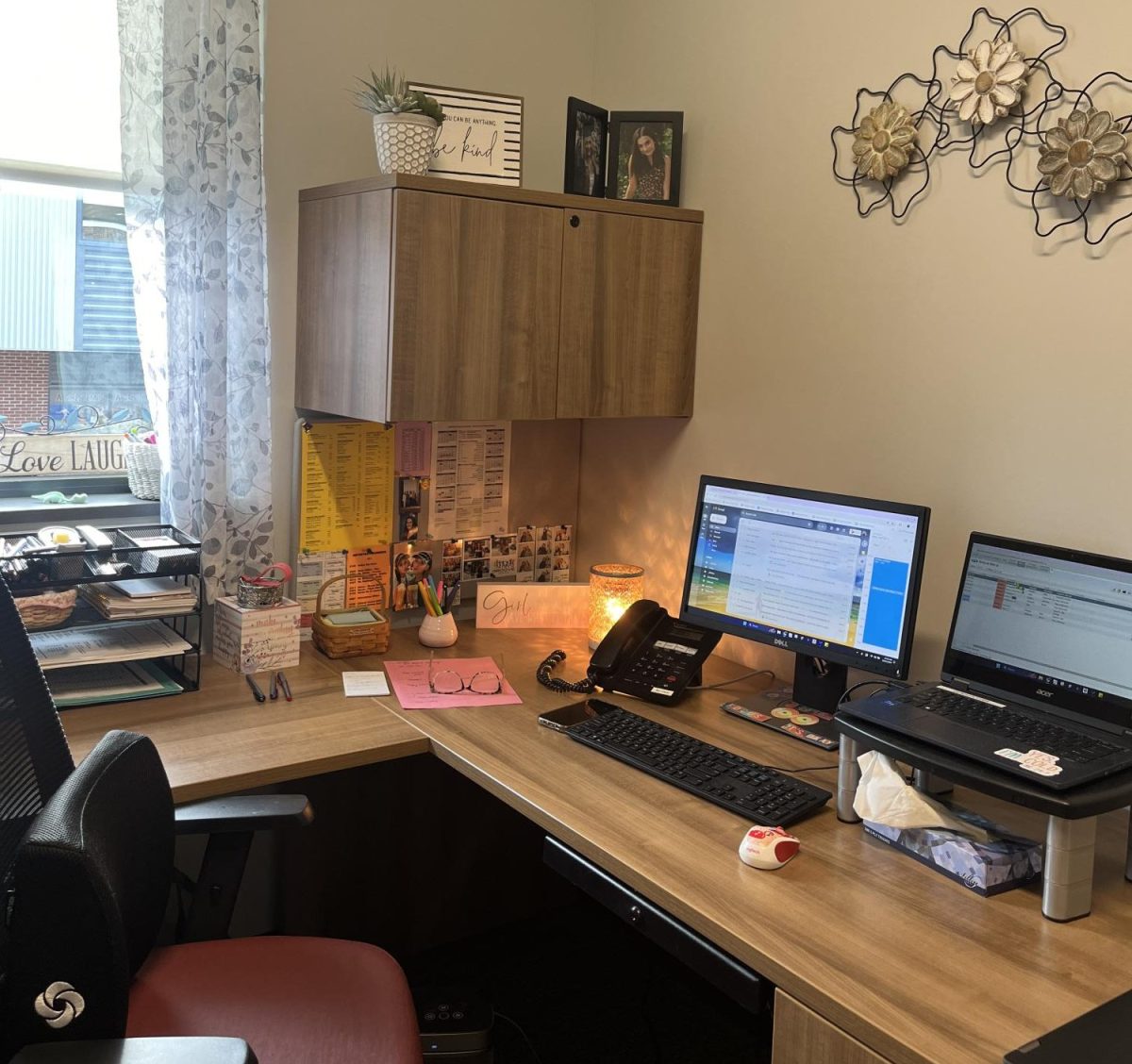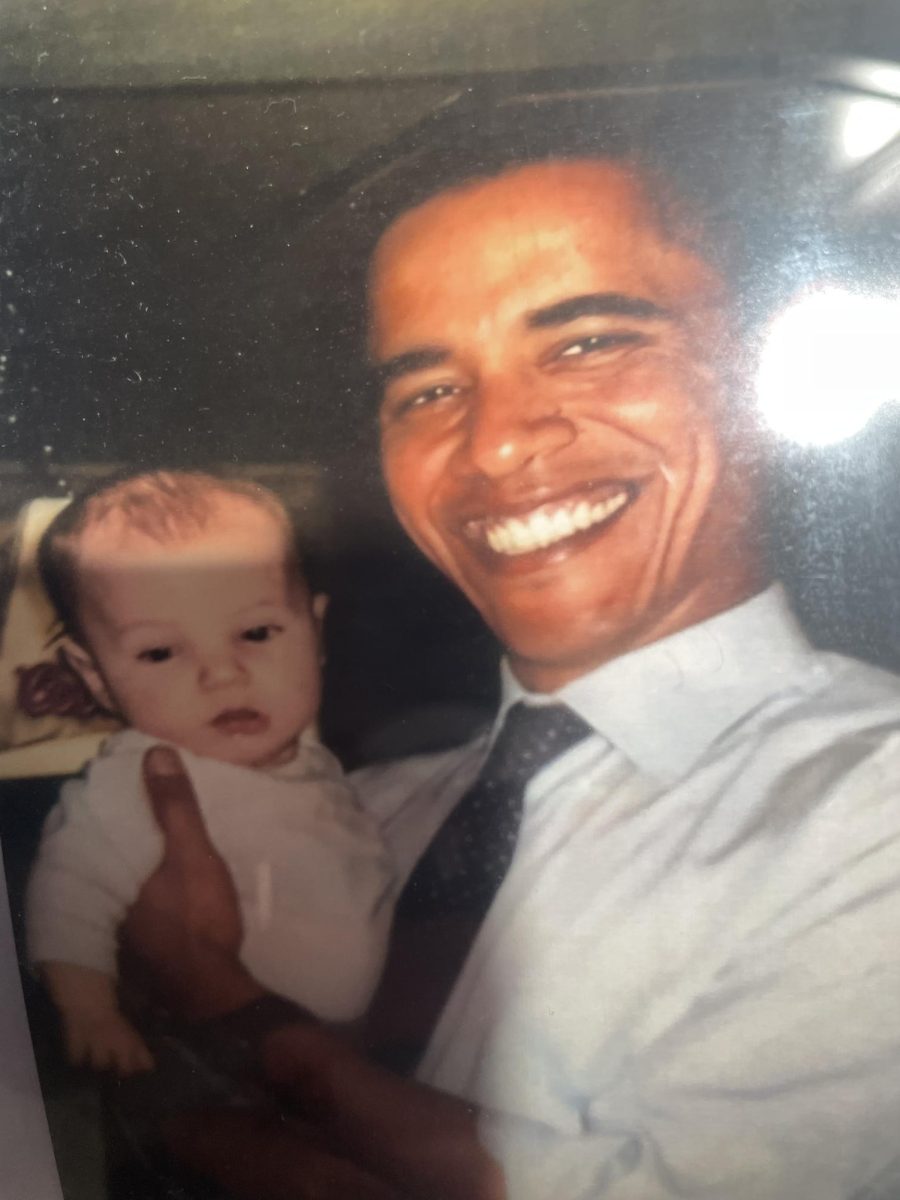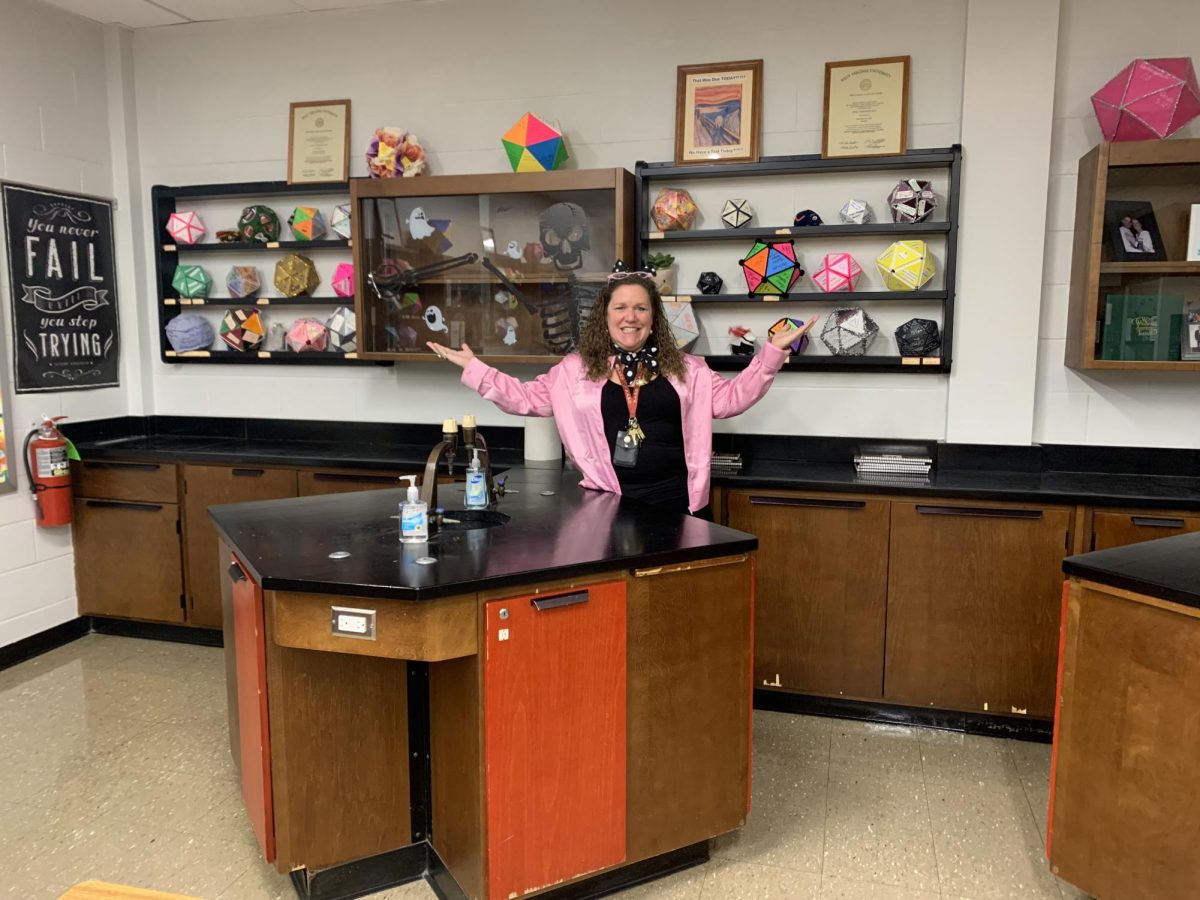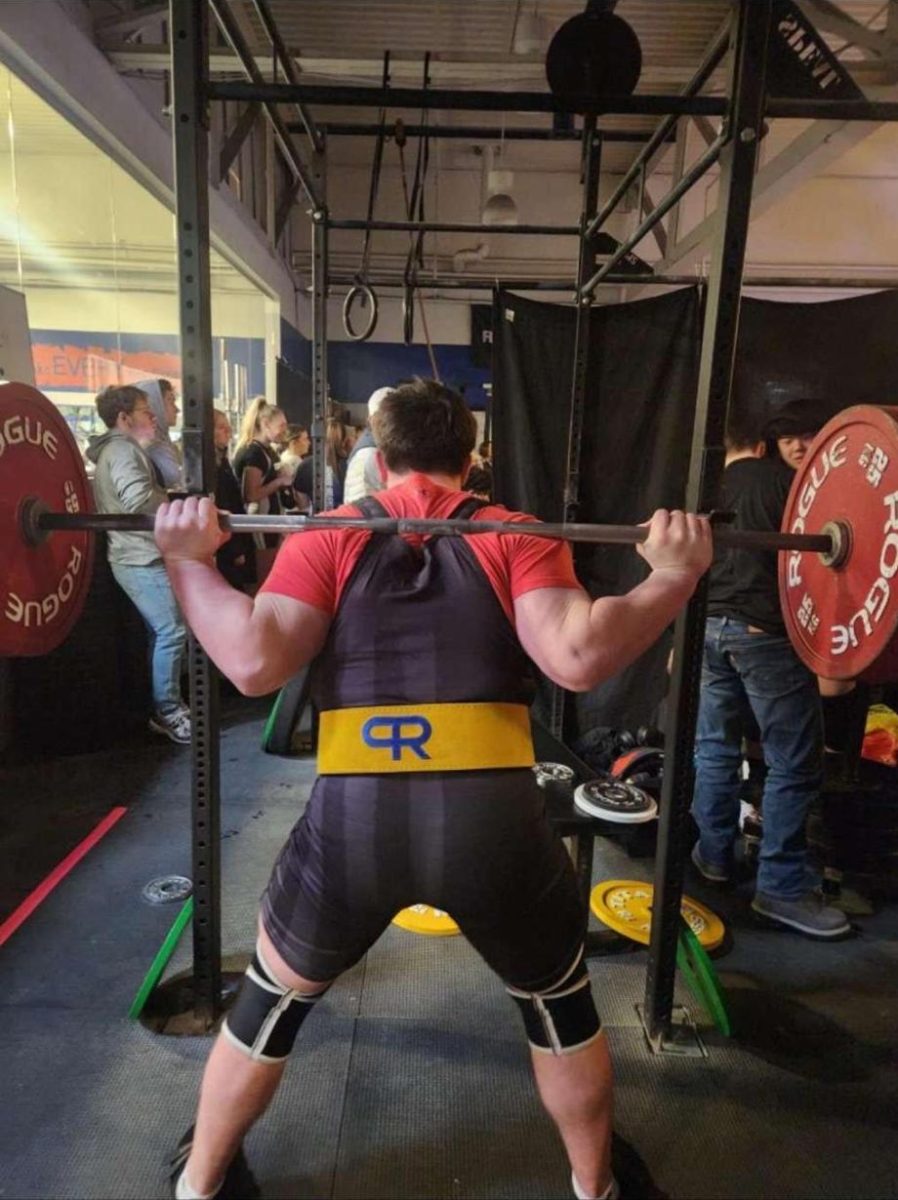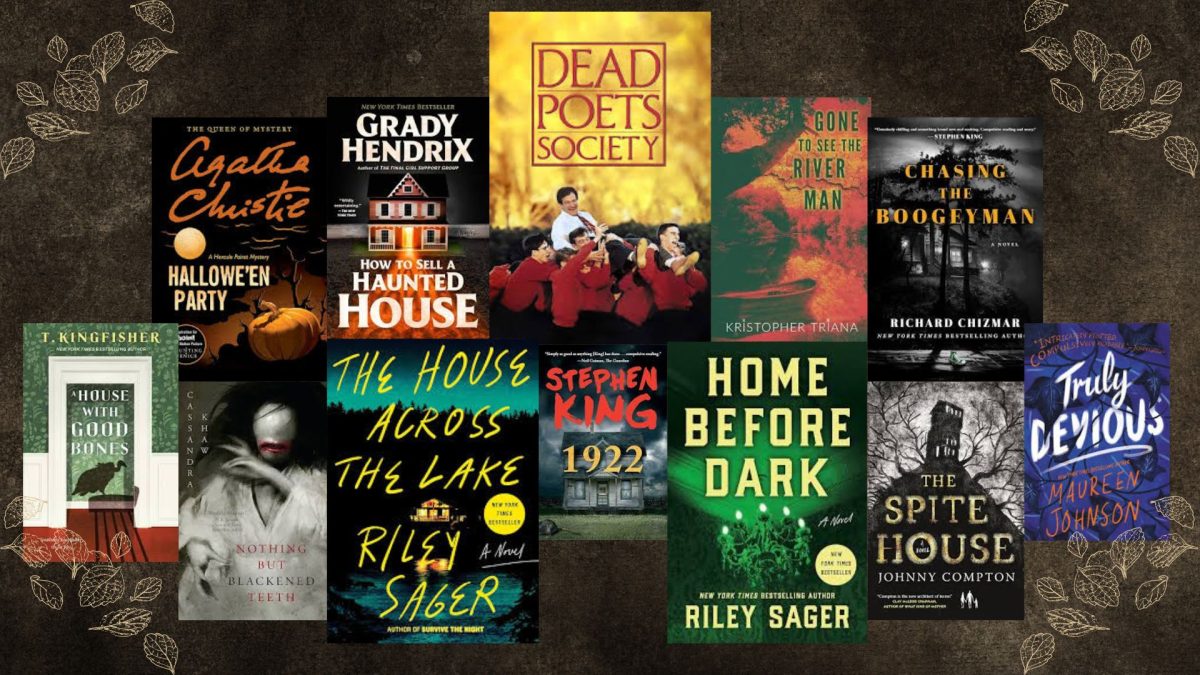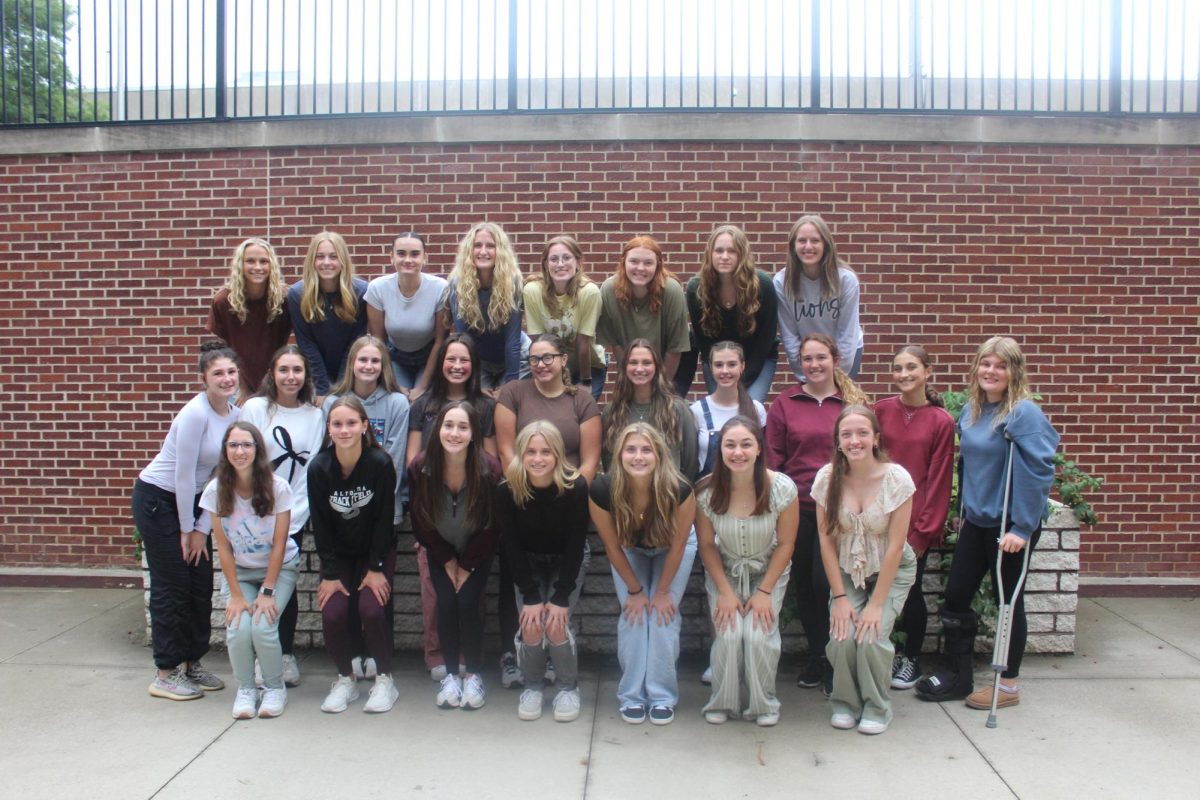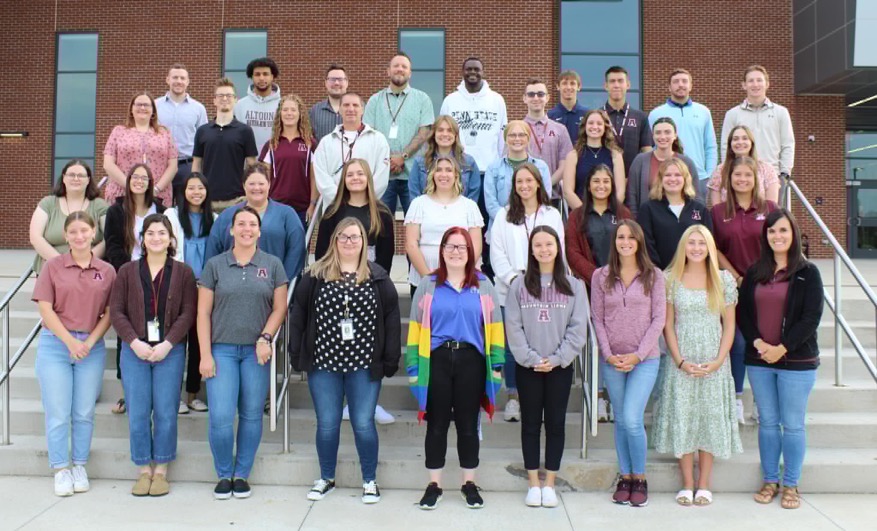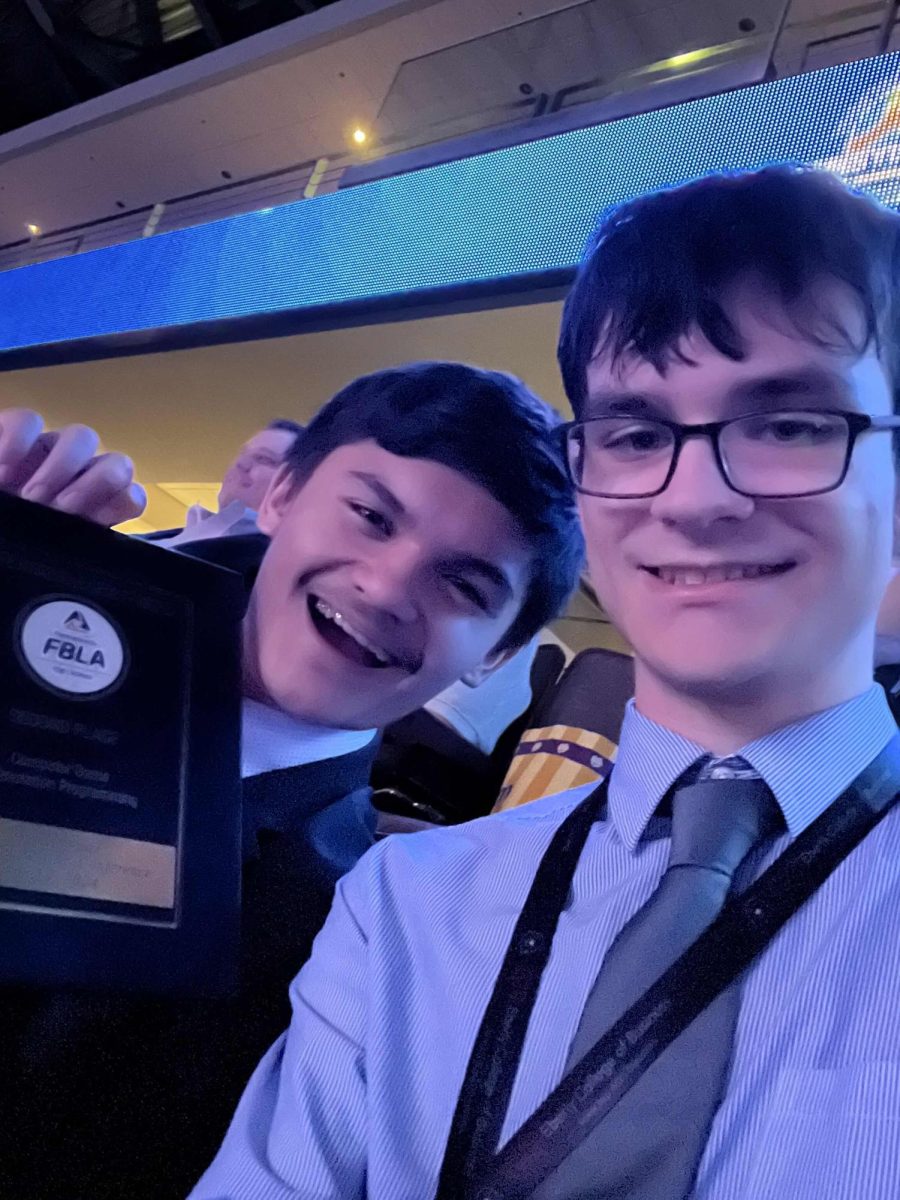Four teachers leave high school to begin next chapters of their lives
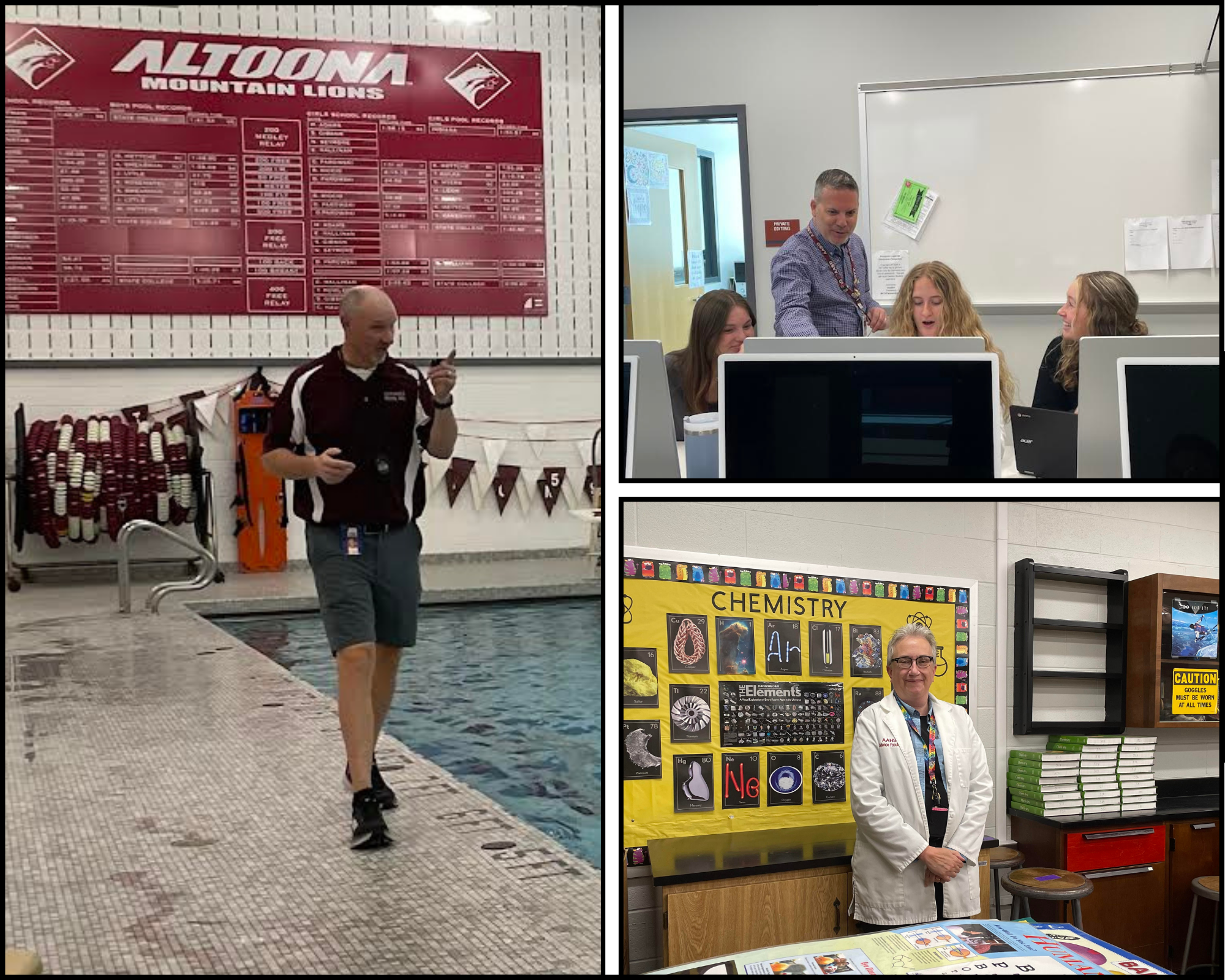
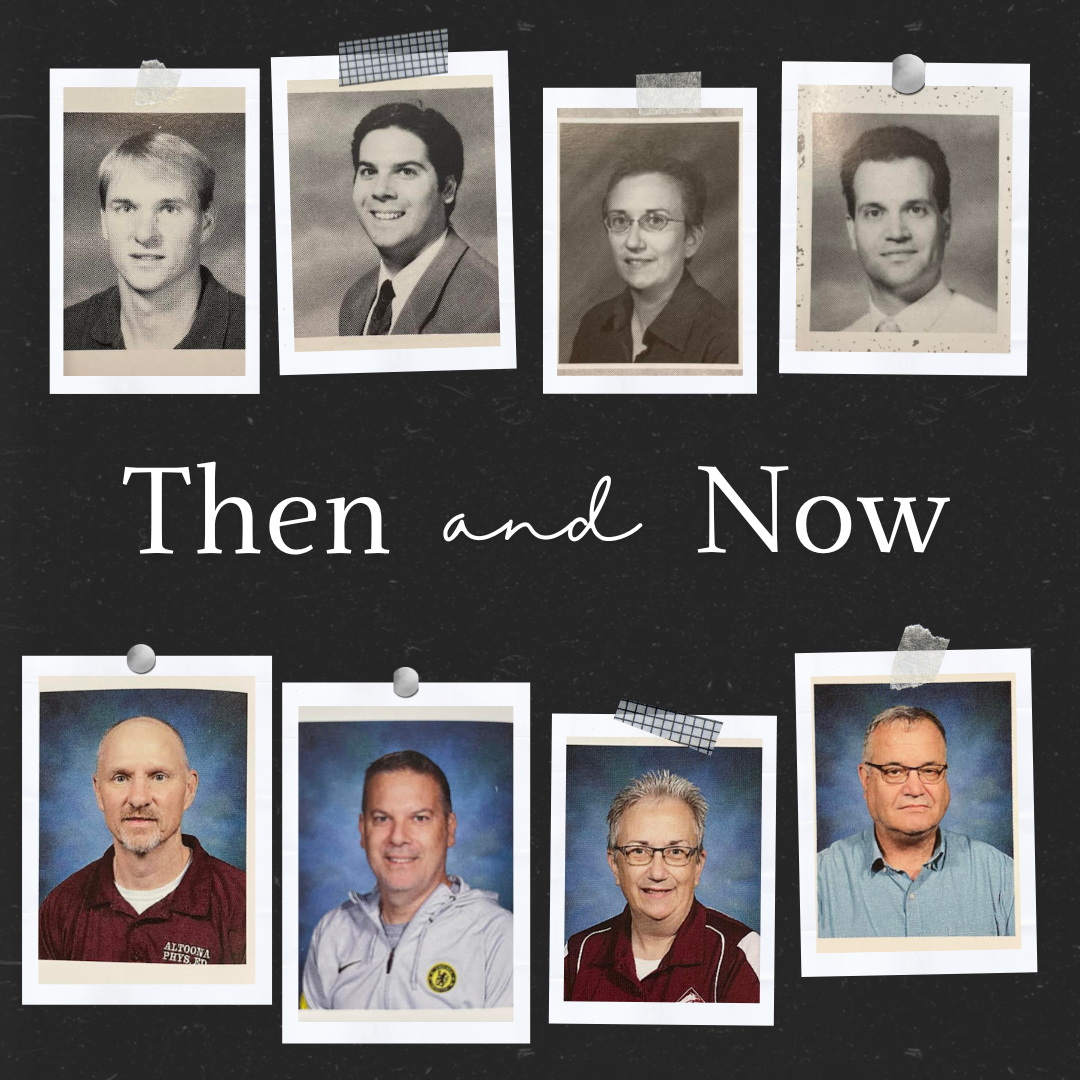
Every year, students start the period of their lives which will be spent in high school, and students leave for the next chapter of their lives. What many may not consider; however, is that this experience is not exclusive to students. At the beginning of the 2023-24 school year, 16 new teachers were welcomed onto the high school staff, and concluding the year, four will leave and enter the next chapter of their lives.
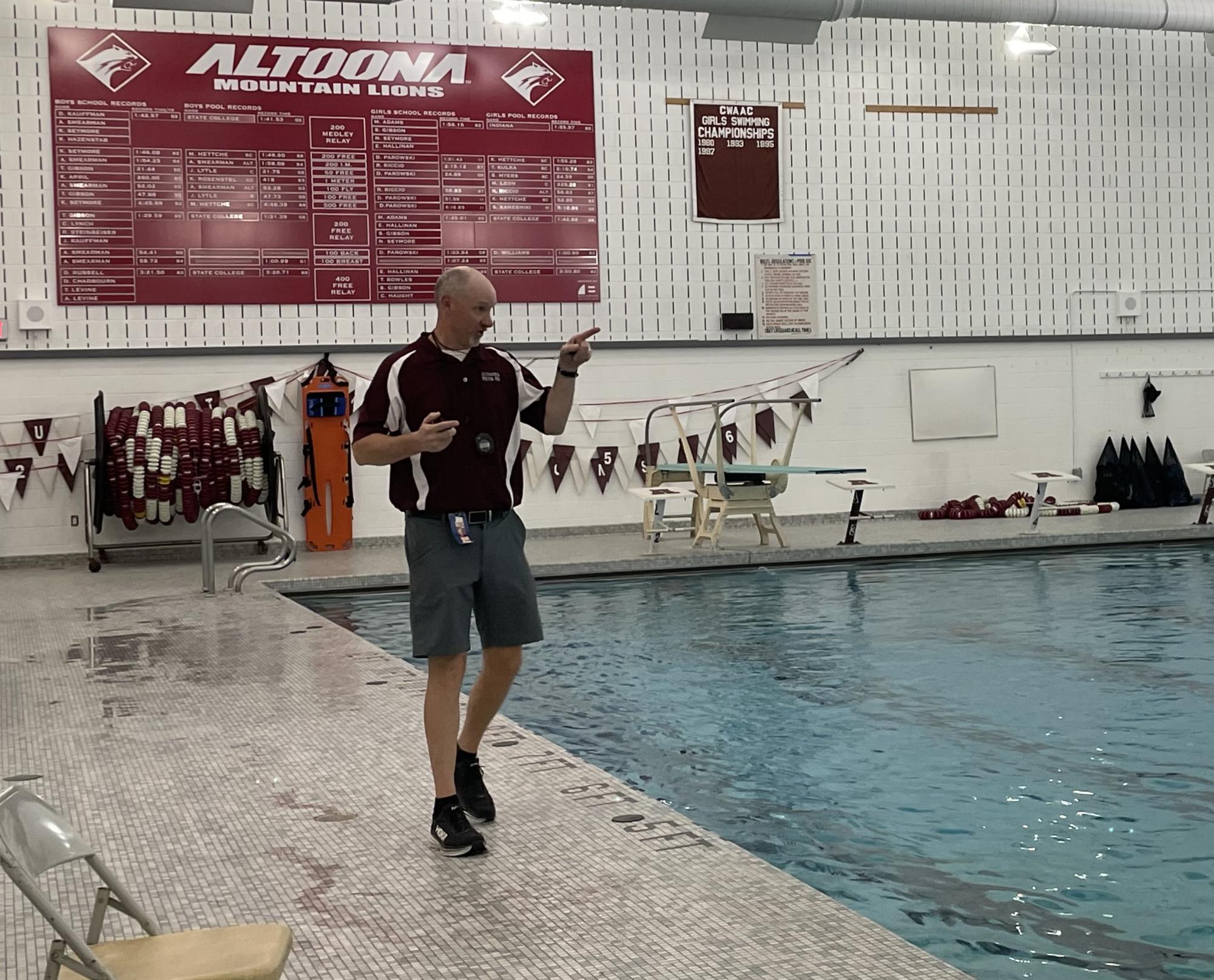
Q: When you were little, what did you want to be when you grew up?
A: I wanted to be a professional baseball player.
Q: Why did you decide to start teaching?
A: I always liked working with kids, and I always liked sports. Combining those two into being a physical education teacher made sense to me.
Q: Did you always know you wanted to be a teacher? When did you know?
A: No, I didn’t know I wanted to be a teacher until I got to college and realized that was a better option for me than what I initially went into. What I initially went into was becoming an accountant, and I realized that it was more of a sit down, not very active job. I thought, what would be better to do, more active and enjoying that activity a lot more than being an accountant, so I decided on physical education.
Q: What has your favorite part of teaching been?
A: Interacting with the kids and just getting to know them and seeing the success they have in the things they do in class.
Q: Do you do anything for the school outside of teaching?
A: I was the boys’ and girls’ volleyball coach in the late 90s and early 2000s, and I am the boys’ golf coach. But since I’m retiring from teaching, I’m also going to retire from that. Some other things I do is run the scoreboard for games at the fieldhouse for basketball games and volleyball games, and also football games at Mansion Park. And, back when we had intramurals, I was an intramural director for a couple of different sports.
Q: If you weren’t a teacher, what do you think you would be doing?
A: I’d probably be in some kind of business setting relating to athletics, whether it would be in like a golf field or some other sports related job.
Q: What are the biggest struggles you have faced throughout your career and how did you overcome them?
A: Probably kids who are not really interested in an activity and doing the things that you want them to do in class. So, kids that just refuse to participate and when they refuse to participate trying to figure out a way to get them to be more active and do what they’re supposed to do, and just trying to relate to them.
Q: If you could teach one lesson again, which one would it be?
A: Over the years, I taught an advanced swim class, which was a lifeguarding class. I really enjoyed preparing those kids to be lifeguards and all of the aspects of it; the rescues that they had to do but also the CPR aspect to it. I really enjoyed that class, but I haven’t taught it in a couple of years. I would like to go back and teach that again.
Q: What is your best memory from your career?
A: Best memory I have is that I’m still in touch with a lot of the kids I’ve had in class. Last year, I went on a vacation out to the Pacific Northwest, and there was a girl living out there who I had in class for three straight years that I’ve kept in contact with. We went out to lunch with her and her boyfriend. Stuff like that. The memories you have of the people you interact with, not just the kids but also some of the teachers here and some of the lunch ladies. Everybody on staff. You try to become friends and have that interaction with on a daily basis. That makes the teaching profession such a joy.
Q: What has your proudest moment as a teacher been?
A: I would say that my proudest moment is when a kid comes up to me and says, “This is my favorite class. I enjoy this class so much and I appreciate the fact that you have created this environment so that it makes us feel like we enjoy it, even though we have to work hard and do some things in class.” When kids say that to me, which it’s not super frequent, but it’s enough for me.
Q: What has the best part of this school year been?
A: It’s kind of a different thing knowing that you’re retiring and enjoying the last time you do something that you’ll ever do. Putting that in your memory bank and saying, “Yeah, this is the last time I’m going to teach this aspect, or the last inservice, or the last faculty meeting, the last prom I’ll be associated with.” All of those things. The lasts are the things that have been bittersweet. I guess sometimes you could say that they’re the best thing, but also now you’ll never get to do them again, which is a bit sad, too. It’s been neat enjoying each and every moment.
Q: What have you learned from your time as a teacher?
A: Perspective changes over the years. Like, you think you know things your first year, and by your tenth year your overall perspective is so much different. So, the overall perspective from year one to year 32, for me, has been such a huge learning curve that I was able to kind of figure out on the fly, and then try to improve it as I went through.
Q: Do you think this year being your last has made you make the most of this year?
A: Absolutely. When I coached the golf team in the fall, and I didn’t know for sure that I was going to retire, but I knew that it was a possibility, it just made me look at it differently and enjoy the full experience. And then, as I made the decision in mid-March to retire, it just made me think about things a little bit differently and try to enjoy them each day. People ask me, “Are you counting down the days?” I don’t really count down the days until I retire, I’m enjoying each day until I retire.
Q: What made you decide to retire this year?
A: I had a goal years ago that this year would be the first year that I could retire financially, as well as some other things that are going on. I decided that, if I’m healthy and there’s other things I want to do in life, and I could afford to retire at this point, why not take the opportunity to do that? I live my life pretty conservative financially, so that allowed me to invest some money and have the financial end taken care of. Now, I’m at a point where I’m still healthy enough where I can do other things. I can travel, I can play golf, I can get other jobs if I want. So, just being at the point now where I realize, “Hey, life is kind of short. You taught for 32 years, and you enjoyed that. Now, let’s start a new chapter.”
Q: What do you think you’ll miss the most after you retire?
A: I will miss the structure and the kids and the other teachers. A lot of positive interaction and memories. The few negatives are not outweighing all of the positive experiences.
Q: What do you plan to do after you retire?
A: Travel. I already have a part time job that’s going to be on a golf course; I’ve always wanted to do that. Work with my church a little bit more. Spend some time with my family. My parents are getting older, and I’d like to be able to have some time with them as well. Just basically having the opportunity to do some things that you didn’t have the opportunity to because you’re teaching. Being able to travel in September and October. Enjoying that time of year. That was my busiest time of coaching and teaching, now I have that time where I can do whatever I need to do or want to do.
Q: What advice would you give to aspiring and incoming teachers?
A: Know for sure that you want to be a teacher. There’s a lot of things that are difficult about it, and if you’re kind of wishy washy about it, like, “I like the fact that I’m going to be off in the summer, I like the fact that my days start early and I have the rest of my day.” If you’re just looking at those things and saying you like those. What really drives the teacher is what I’ve talked about: the interactions, actually teaching and being passionate about it. If you’re kind of on the fence, it’s not something that you should take lightly because you’re shaping the youth of America, and that’s a tough, tough job.
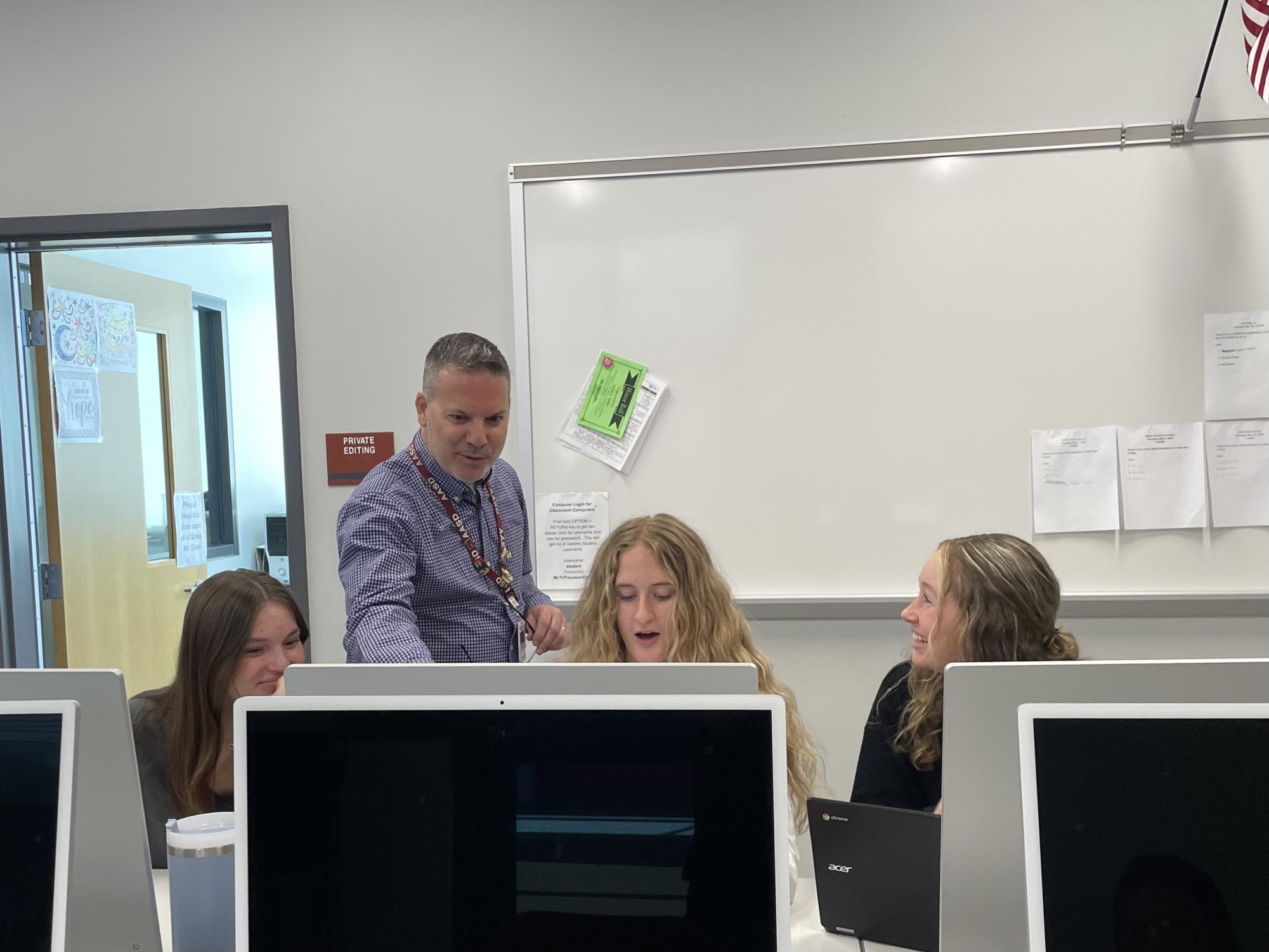
Q: When you were little, what did you want to be when you grew up?
A: I wanted to be a lawyer, but I also wanted to be an English teacher, too. I decided to do that.
Q: Why did you decide to start teaching?
A: It was just something that I always wanted to do. I enjoyed the teachers that I had in school; they were very inspirational to me. I just wanted to reciprocate that back when I was able to.
Q: Did you always know you wanted to be a teacher?
A: Pretty much, yes.
Q: What has your favorite part of teaching been?
A: The interaction with the students. They’re so much fun, and I really have a good time with them, and we have a great relationship as far as working together and just laughing together about all kinds of things that go on here at the highschool. That’s probably the thing I will miss the most.
Q: Do you do anything for the school outside of teaching?
A: I announce boys’ and girls’ soccer, boys’ and girls’ basketball, and I do the video board for boys’ and girls’ volleyball as well.
Q: If you weren’t a teacher, what do you think you would be doing?
A: Honestly, I have no idea.
Q: What are the biggest struggles you have faced throughout your career and how did you overcome them?
A: I would say the biggest struggles were just trying to keep the program gaining momentum every year. The whole COVID situation was a huge blow to everybody. That was probably one of the biggest challenges of my entire career.
Q: If you could teach one lesson again, which one would it be?
A: I’ve always been a proponent of trying to teach kids that we do a lot more in here than broadcasting or editing. For me, it’s all about the interaction with people; how to act appropriately and how to be professional when you’re shooting videos and things like that.
Q: What is your best memory from your career?
A: My best memory would just be the kids in general. I laugh a lot with them, and we have a really good time together. I definitely will miss them.
Q: What has your proudest moment as a teacher been?
A: At the beginning of this year, I won the Care award, and it was just very humbling. I felt so honored to be nominated by my colleagues to win such a prestigious award.
Q: What has the best part of this school year been?
A: There’s a lot, but I really have enjoyed working with the students at all of our football games earlier in the year. We had a lot of fun live streaming the football games.
Q: What have you learned from your time as a teacher?
A: Learn to be patient, learn to always fight for what you want and what you know is right because, sooner or later, people come to realize that what is right is the best way to go.
Q: Do you think this year being your last has made you make the most of this year?
A: No, I honestly haven’t treated it any differently. People ask me every day, “How many days are left?” “Am I counting down the days?” Things like that. To be perfectly honest, I haven’t been and I will not. It’s kind of like any other year to me, and when this year’s over, I’ll be finished with this part of my life. I’ll still be around because I will still be announcing games and things like that. I approached it like any other year, and like any other year it’s just flown by.
Q: What made you decide to retire this year?
A: I just felt it was time for me. Being in high school for 31 and a half years is a little trying. Every year you get older, but the kids stay the same, and it’s hard. It’s a very, very, very difficult job, and I think it’s just kind of caught up to me. I just knew it was time to go.
Q: What do you think you’ll miss the most after you retire?
A: I will miss a lot. One of the great things is working with my wife has been awesome, but I will also miss my colleagues and seeing them on a daily basis. I have some of my best friends here, and I will miss talking to them every day.
Q: What do you plan to do after you retire?
A: I’m just going to take some time off and relax and see where the next phase of my life takes me.
Q: What advice would you give to aspiring and incoming teachers?
A: I would say be prepared because it’s probably one of the hardest jobs you will ever do.
Q: Anything to add?
A: I would like to thank everybody for all of the support they’ve given both me and my students in the program over the years. It hasn’t gone unappreciated.
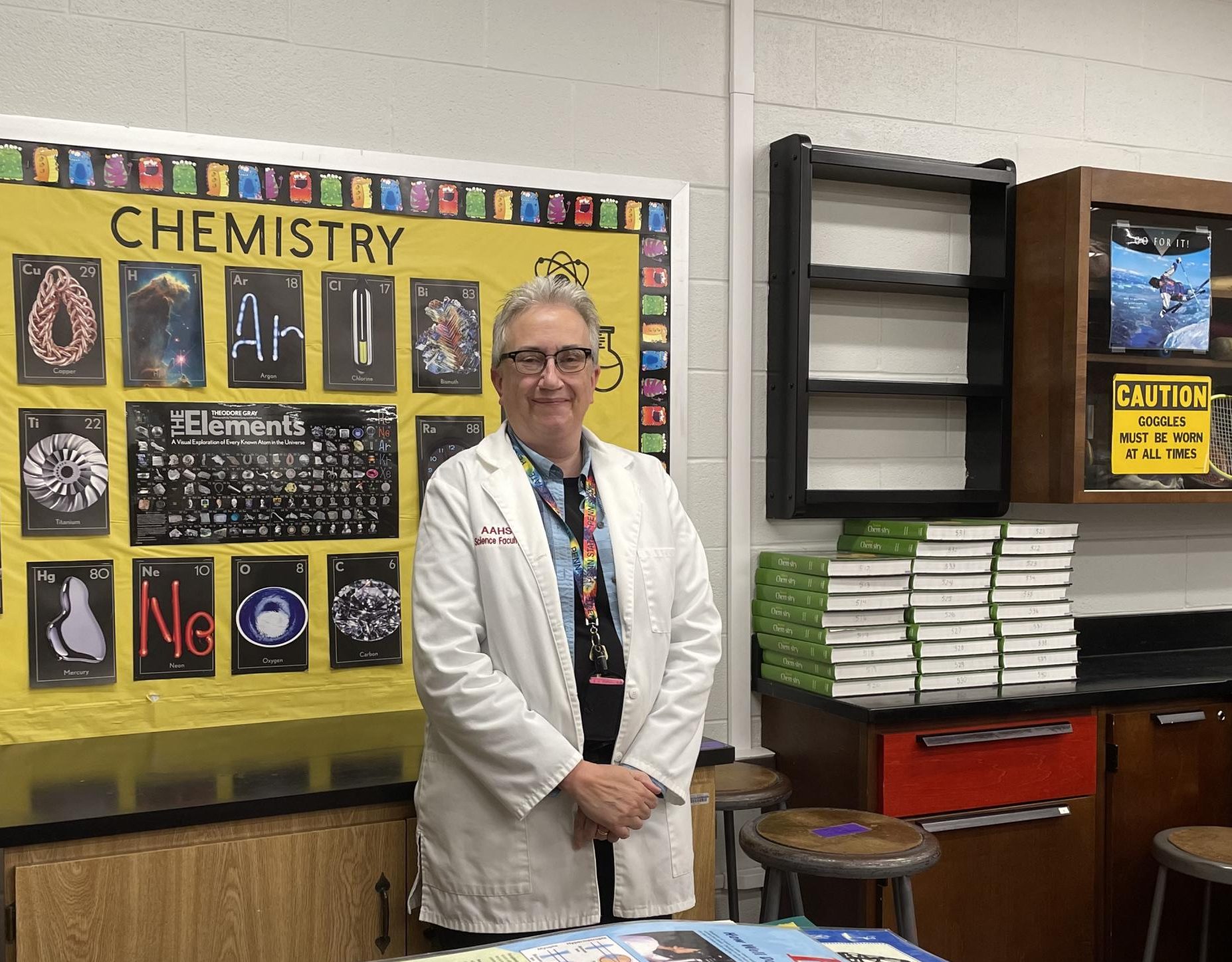
Q: When you were little, what did you want to be when you grew up?
A: FBI agent.
Q: Why did you decide to start teaching?
A: I wanted to increase my scope of influence. I was working at the paper mill, and I was looking for something else to do. That appealed to me.
Q: Did you always know you wanted to be a teacher? When did you know?
A: No. When I was trying to figure out what to do after working at the paper mill, I took a bunch of different classes and different things. Things like juvenile justice, science education and business management. Those were the areas I pursued class wise, and then I stuck with science education.
Q: What has your favorite part of teaching been?
A: Interacting with the students.
Q: Do you do anything for the school outside of teaching?
A: Yes. I’m one of the co-sponsors of the Earthkeepers’ Club.
Q: If you weren’t a teacher, what do you think you would be doing?
A: I’d probably be doing adult education and wastewater treatment plant licenses for operators.
Q: What are the biggest struggles you have faced throughout your career and how did you overcome them?
A: Keeping up with the best practices and new ways of doing things. Using technology and just going through a lot of professional development.
Q: If you could teach one lesson again, which one would it be?
A: My last day of school.
Q: What is your best memory from your career?
A: Having fun and doing the community service projects for Toona Tune-Up.
Q: What has your proudest moment as a teacher been?
A: Seeing students graduate.
Q: What has the best part of this school year been?
A: I guess the best part of this year has been doing labs with students for the last time.
Q: What have you learned from your time as a teacher?
A: Patience and resilience.
Q: Do you think this year being your last has made you make the most of this year?
A: For me, I harbor a lot of gratitude because of being a cancer survivor, and this year was the year I became cured. It makes me very humbled for what I’m able to still do and others are not able to do.
Q: What made you decide to retire this year?
A: It just felt right, and I have other things that I want to pursue now.
Q: What do you think you’ll miss the most after you retire?
A: All of the social interaction with colleagues and the students.
Q: What do you plan to do after you retire?
A: I have a very long to-do list, and there’s a lot of eclectic traveling sites I want to go to.
Q: What advice would you give to aspiring and incoming teachers?
A: Be flexible, be caring and pursue professional education for aspects you’re unsure about.
Q: Anything to add?
A: It’s been a great run of 21 years, and I’m looking forward to the next 21 years of doing other things.
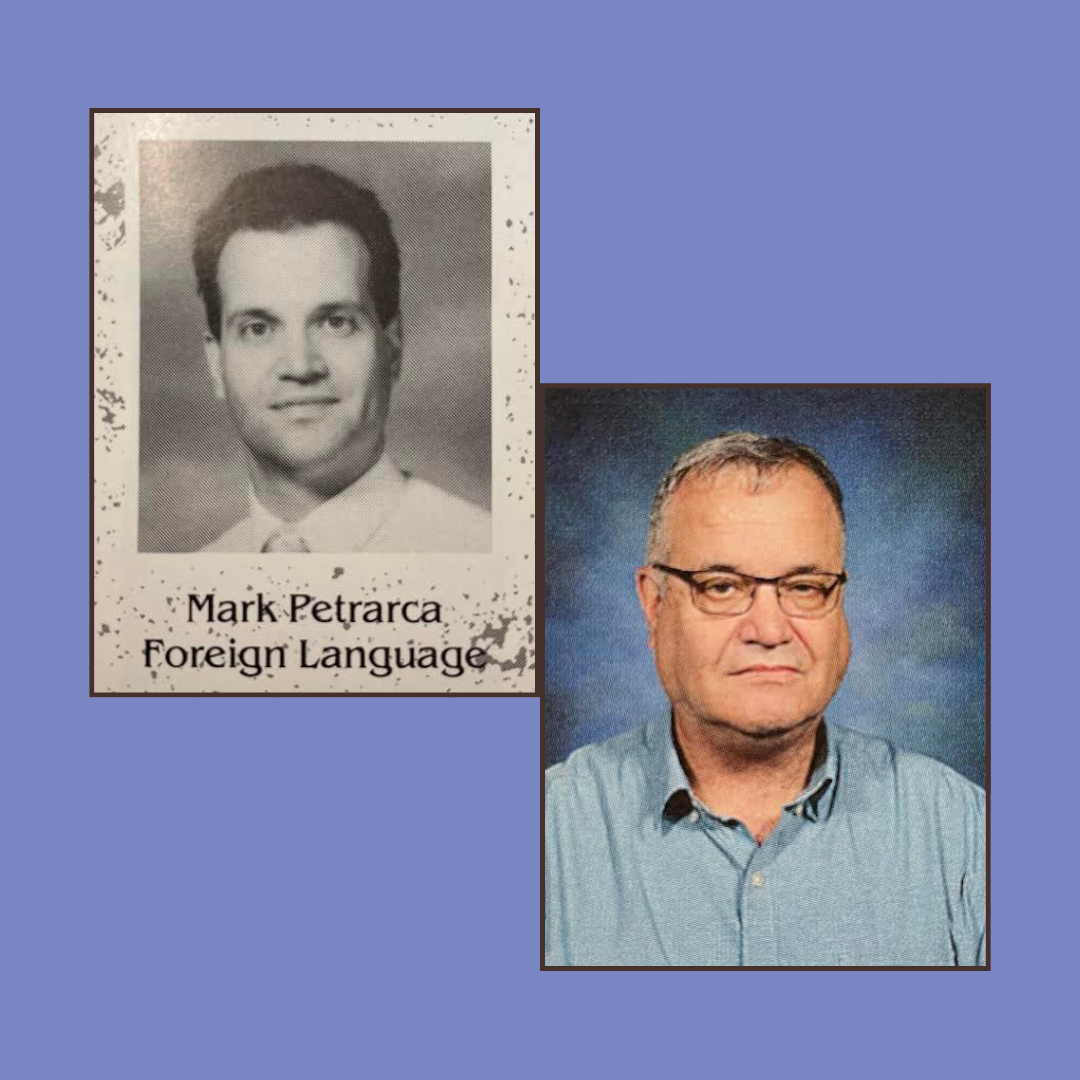
Q: When you were little, what did you want to be when you grew up?
A: Truthfully, I had no idea. I kind of figured it out as I went through life.
Q: Why did you decide to start teaching?
A: When I got out of the army, I had a degree in foreign language, and there’s basically two things you can do: teach or translate. I like working with people, so I chose teaching. Plus, I thought that gave me the opportunity to contribute to society.
Q: Did you always know you wanted to be a teacher? When did you know?
A: No, honestly I didn’t. That’s something I decided later in life; I didn’t start off in elementary school thinking I was going to be a teacher.
Q: What has your favorite part of teaching been?
A: Everyday is different. You really do make a difference.
Q: If you weren’t a teacher, what do you think you would be doing?
A: Probably some type of administrative job at a college. Like, perhaps director of international students or something like that because I have the background for it.
Q: What are the biggest struggles you have faced throughout your career and how did you overcome them?
A: Try to see adversity as an opportunity to learn. Pray.
Q: If you could teach one lesson again, which one would it be?
A: I would like to teach Italian. It’s my ancestral language.
Q: What is your best memory from your career?
A: Accompanying Altoona High students on a state sponsored exchange trip to Lithuania in November of 1992.
Q: What has your proudest moment as a teacher been?
A: Earning a doctorate while working full time as a teacher. Seeing my students graduate and seeing students be successful in life.
- What has the best part of this school year been?
A: Attending the Christkindlemarkt in Mifflinburg, PA every year with my German students.
Q: What have you learned from your time as a teacher?
A: I’ve learned to be more patient, understanding and a little less judgemental.
Q: Do you think this year being your last has made you make the most of this year?
A: No, because I didn’t even decide to retire until February. I was planning to stay for two more years, but I have health issues, so I decided it would be better to go a little bit early.
Q: What made you decide to retire this year?
A: Health issues.
Q: What do you think you’ll miss the most after you retire?
A: I will miss seeing the students every day and working with my colleagues.
Q: What do you plan to do after you retire?
A: Working on my health is my main concern. I may do part time work down the road. It would be language related. I could be like a court interpreter, I could do other things, but I’m not trained for that yet. Right now, my main concern for the next year is just trying to exercise. I’m trying to exercise right now to try and recover some of my health.
Q: What advice would you give to aspiring and incoming teachers?
A: You can’t please all the people all the time. Do your best every day and you’ll sleep well at night.
Q: Anything to add?
A: I attended Penn State on an Army ROTC Scholarship and served seven years as a military intelligence officer before becoming a teacher. Also, both of my daughters graduated from Altoona High.


